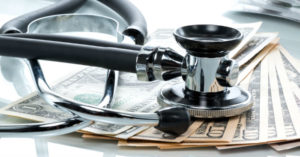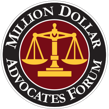Are You Worried About Your Medical Bills?

Do you have a stack of doctor bills and hospital bills that you are struggling to pay? According to the Consumer Finance Protection Bureau, 43 million Americans have overdue medical debt on their credit reports. Medical debts can result from unplanned and unpredictable events such as serious accidents or sudden illnesses. If you have been injured or developed a serious illness, you may have missed a lot of work, exhausted your sick leave and be living on a reduced income. Your future earning capacity may be compromised.
There are a number of ways to deal with medical bills. Here are some ideas to help you reduce your medical bills and get them paid off.
Can the High Hospital Bill Really Be Correct?
One trip to the hospital can result in multiple bills and the billing process and charges can be confusing. Hospital billing clerks do make errors. According to Medical Billing Advocates of America, seven out of 10 medical bills have some type of mistake. It is important to review your medical bill carefully when it arrives to make sure that all the charges are accurate. If the name of the service provider is unfamiliar, check to see if you had medical treatment on the date in question. You will be in a much stronger position to raise questions about charges on the bill if you do so promptly rather than waiting months after the bill was sent. First of all, make sure your name, address, insurance information and dates of admission and discharge are correct. If you determine that you owe the bill, check whether an insurer is paying part or all of the bill. If the charge is incorrect or you do not owe the bill, act promptly to dispute the charge.
What Do I Do If My Medical Bill is Too Large to Pay Off?
Hospitals understand that most patients cannot afford to pay off large medical bills at one time. A financial care counselor at the hospital will usually work with you to set up a payment plan to make smaller monthly payments to pay off the bill over a period of months or years, depending on the size of the balance. Some health care providers will allow you to make payments without charging interest on the balance. As long as the hospital services billing department sees that you are making a good faith effort to pay the debt, they will usually work with you.
Can I Reduce My Hospital Medical Bills?
Yes, it is often possible to get health care service providers to adjust the cost of their services. You may qualify to receive discounted services under the health care provider’s financial assistance policy. Non-profit hospitals are required by law to have financial assistance policies to help patients with low and moderate incomes. You may be eligible for a discount if you cannot afford to pay your basic living expenses and pay your medical bills. Medical hardships are typically evaluated on an individual basis. Speak to the service providers to see if they can reduce the cost of their services. Do not be embarrassed to ask for a discount. Price adjustments are common.
Will My Medical Debt Damage My Credit Rating?
Half of overdue debt on credit reports is medical debt, according to the Consumer Financial Protection Bureau. Doctor’s offices and hospitals do not typically report medical debt to credit rating agencies unless the debt has become delinquent and been turned over to a debt collector. Most items on credit reports come from third-party debt collectors. Do not put medical bill on credit cards if you cannot pay it off. Credit cards charge high interest on debt. Setting up a payment plan with the health care provider may be a less costly option than putting the charges on your credit card. If a hospital turns an unpaid debt over to a collection agency, then the debt will show up on your credit report and can affect your credit score.
Should an At-Fault Driver’s Insurance Cover My Medical Bills After a Car Accident?
If you have been injured by another driver, the at-fault driver’s insurance company is responsible for paying your medical bills up to the limits of the insurance policy. The bodily injury section of the liability insurance pays for medical expenses, rehabilitation, disability, pain and suffering, funeral expenses and legal expenses. For example, if the insurance policy limits are 100/300/50, that means the policy will pay up to $100,000 in medical coverage for any one person injured by the insured driver and up to a maximum of $300,000 if more than one person is injured.
What if My Medical Costs Exceed the Limits of the At-Fault Driver’s Insurance?
Your underinsured motorists (UIM) policy will pay your medical expenses and those of others in your automobile whose medical bills are not fully covered by the at-fault driver’s insurance. Underinsured motorist protection pays your medical expenses up to the limits of your UIM policy. But it is important to understand that your insurance company may refuse to pay if you settle the bodily injury claim with the at-fault driver’s insurance company without your company’s written consent. A knowledgeable personal injury attorney will deal with the insurance companies involved and prevent pushy insurance adjusters from bullying you and taking advantage of your condition.
If the at-fault driver who injured you was driving without insurance, then your uninsured motorist coverage should pay your medical bills and those of anyone else in your vehicle who was injured.
Do I Have to Pay Medical Bills After a Workplace Injury?
Your employer’s workers’ compensation insurance should cover all your medical bills if you were injured at your workplace or while performing your job,. You should not have to pay any costs out of pocket. Workers’ compensation pays your medical expenses for job-related injuries regardless of who was at fault in the accident. Receiving benefits requires that you notify your employer promptly of your on-the-job injury and follow the rules for receiving treatment. Some workers’ compensation administrators may dispute your claim for payment of your medical bills and expenses.
Were You Injured on Another’s Person’s Property?
If you are a customer or visitor to a business or a guest at another person’s house and are injured in a slip and fall accident, your medical bills would be covered by a commercial liability policy carried by the business or a general liability policy carried by the homeowner. A liability policy typically covers bodily injuries up to the limits of the policy. After a serious accident, our attorneys review the types of insurance and coverage limits that each at-fault party has and attempt to negotiate a settlement that reflects the full extent of your injuries.
Hardison & Cochran Attorneys at Law focuses on representing injury victims and people with disabilities in North Carolina. We understand how the pieces of the insurance puzzle fit together to cover your medical bills. Hiring a skilled personal injury lawyer to focus getting your medical expenses paid can relieve you of that burden. If we are representing you in a personal injury claim, we will inform the medical provider that we are seeking compensation to pay your medical bills. Hospitals and health care providers are often willing to wait to be paid if they understand that our attorneys are representing you in a personal injury.
The Attorneys at Hardison & Cochran
If you think someone else may be at fault for your medical bills, we might be able to help. Let one of our dedicated attorneys review your accident at no charge and explain how we may be able to assist you. Contact us today.



















